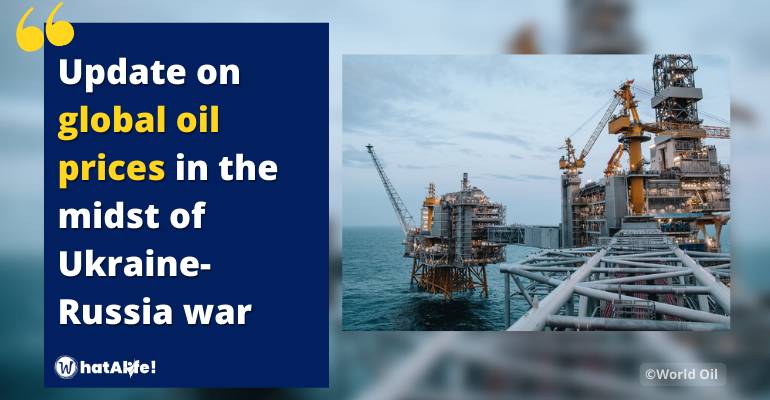The price of Dubai crude has risen by roughly US$ 3.00/bbl week on week. MOPS gasoline and MOPS diesel have both increased by nearly $2.50 per barrel and $2.10 per barrel, respectively.
The Reasons for the Price Change
- Following the invasion of Ukraine by Russian military troops, crude oil prices increased by roughly $10/b and exceeded the $105/b mark in London intraday trade on February 24, fueling fears of supply difficulties across Europe and the world. Prices were last seen at these levels in August of 2014, when the US and Europe imposed sanctions on Russia. In response to Russia’s military action, the US and EU have promised to impose the most severe sanctions possible. Given Europe’s strong reliance on Russian oil and gas, and the already tight position of the oil markets, any sanctions impeding payment operations will complicate the problem.
- Higher driving activity predictions in the region, as well as the reopening of borders by more Asian economies, pushed Asian gasoline cracks higher this week, up $0.30/b to $15.69/b on the February 24 Asian close. Lower gasoline exports from China in March, as well as the armed standoff between Russia and Ukraine, kept the fuel complex going.
- Lower Chinese exports of gasoil/diesel, as well as increased volatility and uncertainty generated by Russia’s invasion of Ukraine, which could impede trade flows, continue to provide a strong floor for the Asian gasoil complex. Russia is Europe’s major gas oil exporter, and any potential sanctions or port difficulties resulting from a military war might further tighten the already strained Asian regional supply by widening the arbitrage to ship barrels to the West.
Meanwhile, from February 21 to March, Australia reopened its borders to vaccinated visitors, while Japan announced restricted border openings for education and commercial purposes.
Stockpiling ahead of Indonesia’s forthcoming Ramadan season, which begins on April 2, continues to support the Asian gasoline market.
The driving index in India was 238.73 above baseline, up 2.7 percent week on week, while it was 134.41 158.06 above baseline levels in Australia and Japan, up 1.3 percent and 6% week on week, respectively.
However, the mobility index in Indonesia, Malaysia, and Vietnam has deteriorated as a result of rising infections and increased retail gasoline prices, which have restricted some discretionary spending.
In the field of FOREX, the Philippine peso fell by P0.02 against the US dollar last week, to P51.35 from P51.33 the week before. – WhatALife!
Source:(doe.gov.ph)
Also Read: China requested Russia to delay its invasion of Ukraine until after the Winter Olympic



Leave a Reply